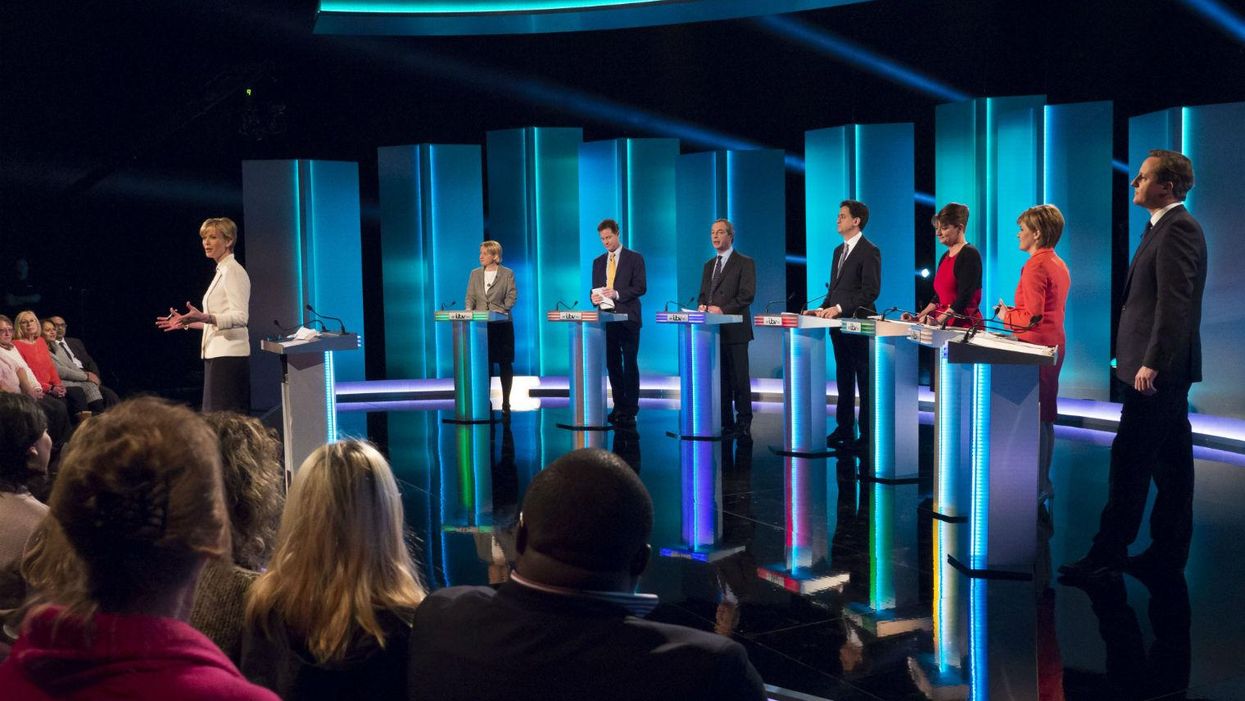News
Bethan McKernan
May 14, 2015

What's the one thing that the Green Party and Ukip agree on? That the UK's first-past-the-post voting system is bankrupt.
That's what Nigel Farage said after Ukip received 12.6 per cent of the national vote, the third highest in the country, but won only one seat.
The Greens also managed to amass 1.2 million votes and yet are only sending one MP - incumbent Caroline Lucas in Brighton Pavilion - to Parliament.
Since the 2015 election returned the least proportional results in British electoral history, voting reform is back in the news. More than 220,000 people have signed a petition calling for changes to the system.
“It’s clear as day that first-past-the-post isn’t fit for purpose anymore," Will Brett, head of campaigns at the Electoral Reform Society, told i100.co.uk.
“Some defenders of the system think it means the system worked just because there was a slim majority this time around. But more and more people are voting for parties woefully represented by our system."
What would parliament have looked like under PR?
Voters would probably behave differently under a different voting system as the significance of protest or tactical voting would be lessened, so the results of last week’s election are not necessarily reflective of voters' first choices.
That said, based on the 629 seats won by the six main political parties in Scotland, England and Wales in 2015, under PR the Tories would have lost 90 seats from their current total.
While they would still be the biggest party in parliament, with only 240 MPs the Conservatives would probably have been forced into another coalition - and their most likely partner would be Ukip, who as the third biggest party by percentage share of the vote would have secured 82 seats, rather than one.
The Greens would have gained a strong parliamentary voice, increasing their number of MPs from just one to 24.
The huge swings in Lib Dem and SNP support would have balanced out too, with the SNP’s landslide of 56 seats reduced to 31 and the Lib Dems clinging to 51 seats rather than eight.
A 'progressive' coalition of Labour, Lib Dems and Greens would have had 274 seats, and when combined with the SNP, 305 - still short of a theoretical Tory-Ukip coalition of 324.
Do all the 'smaller' parties want to change the voting system?
Broadly speaking, yes, but under the banner of electoral reform there are many options.
The Green Party
“The fact that the Green Party won 1,157,613 votes at this election and just one MP shows that our electoral system is broken,” Sophie Armour, a Green Party spokesperson, told i100.co.uk.
In the Green camp, leader Natalie Bennett wants proportional representation using the Additional Member System - basically a hybrid system where you get two votes, one for a representative and one for a party. Each constituency returns one candidate and the party vote is used to “top up” the number of seats won by each party to represent their proportional share of the vote.
Liberal Democrats
A deal breaker for the Lib Dems in coalition government negotiations in 2010 was a referendum on voting reform. In a compromise with the Tories, they settled on a referendum on switching to the Alternative Vote system, in which candidates are ranked in order of preference.
The campaign was bitterly fought. When put to the nation in 2011, reform in favour of AV was rejected by 68 per cent on a turnout of 42.2 per cent.
The Lib Dems’ preferred voting system is the Single Transferable Vote (STV) system, in which voters mark their ballot papers in order of preference no matter the party and constituencies are larger but represented by two or three MPs. STV is already used in the Northern Ireland Assembly and local councils in Scotland.
"In a democratic society, everyone’s vote should count equally. That’s not the way it is in Britain today," said Liberal Democrat spokesperson Tim Hobden.
Ukip
Ukip’s 2015 election manifesto called for “a new, proportional voting system… while retaining a constituency link” but didn’t specify a particular system. Spokesperson Alexandra Phillips said Ukip intends to “fight hard” on the matter.
“It would be very difficult for the Conservative Party to reject [reform] without looking like they put party above the country and the voters,” she added.
How likely is any kind of electoral reform under the new government?
The new Conservative majority government is unlikely to put electoral reform on its agenda. David Cameron has pledged to respect the will of the people in 2011’s referendum on AV and retain the first-past-the-post system.
So will anything change?
The new government does plan to cut the number of MPs from 650 to 600 and redraw constituency boundaries to make them the same size in terms of population, a move blocked in the last parliament because it would consolidate Tory support - it is likely the Tories would have won an even larger majority if the proposed boundary changes had gone ahead as planned in 2013. Changes to the current boundaries are expected to be thrashed out by 2018.
We can also expect “English votes for English laws” - another Conservative promise to settle the West Lothian Question, where Scottish, Welsh and Northern Irish MPs can vote on English-only laws but the reverse is not true - once and for all.
“One of the biggest issues facing the Prime Minister is the constitutional question,” said Will Brett of the Electoral Reform Society.
“First-past-the-post accentuates the divides and creates an artificial system," he said, referencing the SNP's haul of 56 out of 59 parliamentary seats with 50 per cent of the popular vote.
"Electoral reform could have a really important part to play in addressing some of the tensions in the United Kingdom.”
According to Brett public opinion is swinging heavily towards voting reform and a poll conducted for our sister paper ijust days before the election indicated that 61 per cent of people believe the voting system should be changed to better represent smaller parties. Whether the new government will consider any of this is an entirely different matter.
More:Here's how the election results would look under a proportional voting system
Top 100
The Conversation (0)















